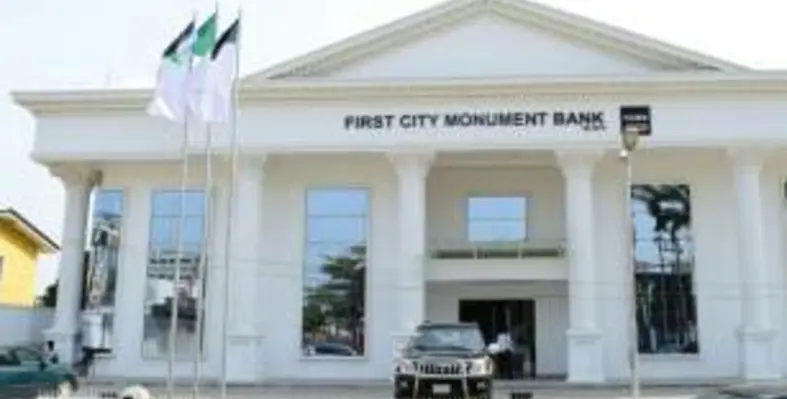As African banks look to expand across the continent, the consolidation of systems and processes is fast becoming a priority
Institutions are aiming to improve their operational efficiency and increase the control they have over their own operations. First City Monument Bank partnered with Infosys Finacle to achieve this and enhance customer service with a new generation banking technology infrastructure.
Over the past few years, Africa’s economy has been among the fastest-growing in the world. With this, the financial system is showing increased appetite for leveraging modern technology. Many African banks are looking to expand their business across the continent, either organically or through acquisitions. The consolidation of systems and processes is a key priority to improve operational efficiency and enhance control over their operations.
Furthermore, along with economic growth, central banks across the continent are focused on policies for enhancing financial inclusion. This requires banks to broaden their reach and bring the vast unbanked and under-banked population into their client base. For instance, retail banking in sub-Saharan Africa is estimated to grow at a compound annual rate of 15 per cent. Technology will play a pivotal role in this.
Africa is an important market for Infosys’ universal banking solution Finacle, accounting for more than 20 per cent of Finacle’s global customer base. The firm is present in 18 countries across the continent and is always looking to expand into new markets.
 “We see this as a great opportunity for Finacle and we are sustaining our investments to enhance our regional presence. We have localised our solutions to meet local requirements and developed a robust ecosystem of empowered partners to provide a full range of services and support to our customers in the market,” says Venkatramana Gosavi, regional head of growth markets, Infosys Finacle.
“We see this as a great opportunity for Finacle and we are sustaining our investments to enhance our regional presence. We have localised our solutions to meet local requirements and developed a robust ecosystem of empowered partners to provide a full range of services and support to our customers in the market,” says Venkatramana Gosavi, regional head of growth markets, Infosys Finacle.
Finacle is essentially a new generation modular universal banking solution, which is built on open systems and uses industry standard platforms and technologies to deliver rich functionality to banks. It provides comprehensive solution coverage for retail, corporate, SME, Islamic finance, microfinance and private banking functions. Being componentised, Finacle provides banks the flexibility to modernise at their own pace, either progressively or in an integrated manner.
Moreover, its enterprise-class components enable banks to break down product-centric silos and eliminate duplicate functions and systems. In addition Finacle provides an advanced architecture which ensures real-time, cloud-ready, 100 per cent service-oriented architecture with 24/7, multi-entity, multi-currency capabilities.
“Scalability wise, Finacle is easily the most scalable solution in the world. Currently, we are deploying what will become the world’s largest core banking implementation at India Post, with more than 150,000 branches and more than 200mn customers, underlining the solution’s extreme scalability,” Gosavi notes.
Case history: FCMB
First City Monument Bank (FCMB) in Nigeria has successfully used Infosys Finacle’s applications for close to a decade. FCMB has implemented various versions of Finacle’s core banking application and is currently migrating to the latest version of this and other business applications, including a CRM (customer relationship management) system. The bank’s treasury operation is also based on Finacle’s Treasury platform. FCMB has also invested in converged infrastructure for more reliable platforms as a beginning of its journey to cloud computing.
A key business objective for the bank is to deepen its retail presence, underpinned by its 2012 merger with Finbank Bank. Emeka Eboegbune, CIO at FCMB, says, “Our Finacle 10 implementation is to enable more flexible and retail-focused products for our customers. We are current leaders in the retail consumer-lending space and intend to keep that lead by upgrading our retail-lending platform to a much more flexible and feature-rich one.”
The bank is also implementing Finacle’s CRM solution, a modular, web-based customer-centric application that provides a unified 360° view of the customer across product lines and multiple back-end systems. It enables banks to improve customer experience across channels and empowers them with a platform for cross-sell opportunities, according to Infosys.
 “Our priority over the next 12 months is to reduce our cost-to-income ratios through technology, while still achieving a new industry benchmark in helpfulness, reliability and customer focus. We are investing in robust infrastructure and security to meet and exceed customers’ expectations, while maintaining stakeholders’ trust in the FCMB brand,” Eboegbune added.
“Our priority over the next 12 months is to reduce our cost-to-income ratios through technology, while still achieving a new industry benchmark in helpfulness, reliability and customer focus. We are investing in robust infrastructure and security to meet and exceed customers’ expectations, while maintaining stakeholders’ trust in the FCMB brand,” Eboegbune added.
“The technology landscape in Nigeria for banks is trending towards providing convenient products and services on mobile devices and towards cloud (private inclusive) computing for more reliability. A key game changer for banks is also their ability to use social media in a secure and productive manner. Some of the technology challenges we face include the availability of reliable network infrastructure across the country and the security of the bank’s infrastructure and power supplies. An increase of electronic fraud incidents is another major challenge,” he remarks.
“The market can look forward to simpler banking services. We have social banking services and mobile applications (apps) for banking services. Currently, we are the only Bank in Nigeria that instantly issues Visa Card. We have been doing this for our Verve and Mastercard products for a while now. We also provide instant account opening via our various channels, such as mobile and web, whereby a customer can get their account number and card instantly, from any place, without needing to visit a branch.”
With the upgrade of its core banking application still in progress, Eboegbune states that the business case for the upgrade relates to the various customer “pain points” that the upgraded version will have to address and redefine in a positive manner.
“These new features and services have been carefully documented and will form part of our systemic sensitisation to customers communications prior to and after the roll out of the new platform,” he notes, adding that the plan will aim to create a positive buzz that will drive customer awareness and ensure they are able to conduct transactions in both a simple and seamless manner.
While security threats faced by banks in Africa are relatively similar to those faced by banks in other parts of the world, including cyber and insider threats, Eboegbune says that banks in Africa often struggle to deal with such threats due to a dearth of capabilities, citing a lack of skills, poor infrastructure and other physical security and social challenges.
Despite these difficulties, FCMB has been able to successful implement new applications with positive initial results.
“We are still in the process of implementing the upgrade as mentioned earlier and the benefits are yet to be realised, but we have been excited by the test results of these features that we have seen thus far,” Eboegbune remarks.
“Our technology strategy is changing the bank’s focus from being a technology driven bank to a technology outfit that provides banking services. In other words, we want banking to be so simple, convenient and fun for our customers. We also want FCMB to be top in their minds and hearts because of the superior customer experience we provide. Banking is going to be synonymous with technology,” he concludes.












